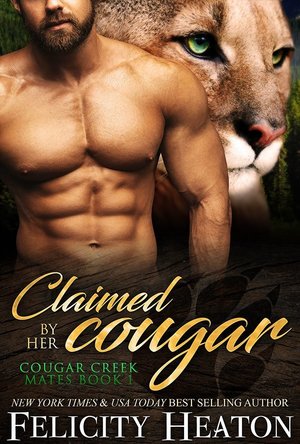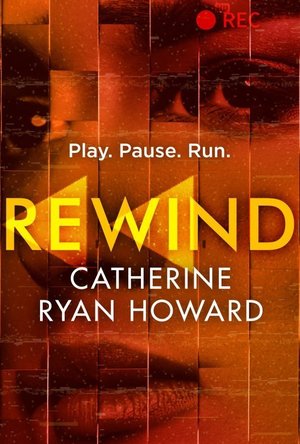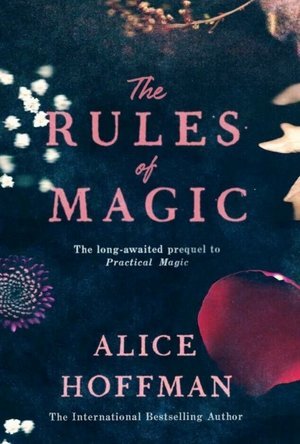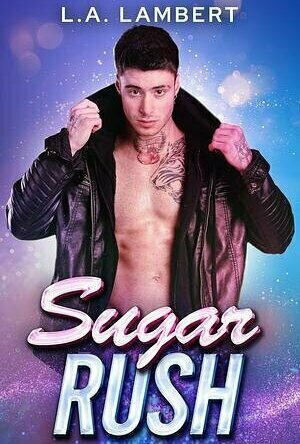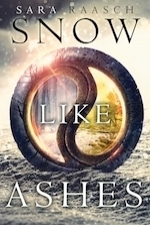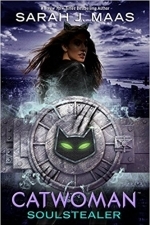Search

Enrique Browne: Bringing Nature Back to Architecture
Book
This highly anticipated monograph focuses on the architectural output of Enrique Browne, a talented...
Merissa (13749 KP) rated Claimed by her Cougar (Cougar Creek Mates #1) in Books
Oct 16, 2018
Claimed by her Cougar (Cougar Creek Mates #1) by Felicity Heaton
Claimed by her Cougar is the first book in the Cougar Creek Mates series, set in the same world as the Eternal Mates series. By that, I mean it is set in the contemporary world, but with the same 'bad guys' being mentioned - Archangel.
Rath has kept his clan safe from Archangel ever since their attack so many years previously. He takes care of any Hunters who show up on his land, and spends his time avoiding most people, preferring to spend his time alone. He looks after the cabins of various clan members who also live elsewhere. His solitude is broken when Ivy shows up on his land, wanting to photograph the black bears. Once she convinces him she is not a hunter, they spend a couple of days together, during which she gets under Rath's skin in more ways that he possibly imagined.
I found this story to be excellently written, as I would expect from Felicity Heaton. How she manages to tie in a previous organisation, within the contemporary world, whilst introducing a whole new set of characters, I think is superb! There were no editing or grammatical errors that disrupted my reading flow. The supporting cast of characters were all intriguing, leaving me wanting more in this series, just so I can get their stories. Luckily for me, Storm comes next, but I also want Ember's story! Yes, I know, I'm greedy!
A great start to the series, and definitely recommended by me. Looking forward to continuing this series.
* A copy of this book was provided to me with no requirements for a review. I voluntarily read this book, and the comments here are my honest opinion. *
Merissa
Archaeolibrarian - I Dig Good Books!
Rath has kept his clan safe from Archangel ever since their attack so many years previously. He takes care of any Hunters who show up on his land, and spends his time avoiding most people, preferring to spend his time alone. He looks after the cabins of various clan members who also live elsewhere. His solitude is broken when Ivy shows up on his land, wanting to photograph the black bears. Once she convinces him she is not a hunter, they spend a couple of days together, during which she gets under Rath's skin in more ways that he possibly imagined.
I found this story to be excellently written, as I would expect from Felicity Heaton. How she manages to tie in a previous organisation, within the contemporary world, whilst introducing a whole new set of characters, I think is superb! There were no editing or grammatical errors that disrupted my reading flow. The supporting cast of characters were all intriguing, leaving me wanting more in this series, just so I can get their stories. Luckily for me, Storm comes next, but I also want Ember's story! Yes, I know, I'm greedy!
A great start to the series, and definitely recommended by me. Looking forward to continuing this series.
* A copy of this book was provided to me with no requirements for a review. I voluntarily read this book, and the comments here are my honest opinion. *
Merissa
Archaeolibrarian - I Dig Good Books!
Enjoyable thriller
This is a page turner of a thriller. It takes a little to get to grips with the time jumping but it helps that it uses rewind, pause and fast forward as chapters to give you some baring and once you get it it’s fine and kinda fun in a novel way. This book lends itself to being a great easy read with enough going on to keep you engaged but without being too taxing on the old noggin - perfect for holiday reading.
Natalie is a social media influencer and I did find the beginning of the book was throwing a bit too much jargon about this area at us; along with describing click bait journalist Audery’s world it felt like a real push to be “with it”. It is however a great area to explore as opening yourself up to the world like that gives a whole huge potential for weirdo exposure. When Natalie visits the remote Irish village of Shanamore she gets to meet even more odd characters in the form of holiday cottage manager Andrew with a real Norman Bates feel to him and other locals. There is definitely an air of creepy, in a skin crawling fashion, about them.
I didn’t find there to be much mystery in this book with it all being too evident who was responsible as soon as they began to appear. The multitude of POVs and the moving around in time did hamper any real development of feeling invested in the characters. All in all an enjoyable quick thriller read without too much thought required.
My thanks to the author, publisher Atlantic Books and NetGalley for the ARC of this book in exchange for an honest review.
Natalie is a social media influencer and I did find the beginning of the book was throwing a bit too much jargon about this area at us; along with describing click bait journalist Audery’s world it felt like a real push to be “with it”. It is however a great area to explore as opening yourself up to the world like that gives a whole huge potential for weirdo exposure. When Natalie visits the remote Irish village of Shanamore she gets to meet even more odd characters in the form of holiday cottage manager Andrew with a real Norman Bates feel to him and other locals. There is definitely an air of creepy, in a skin crawling fashion, about them.
I didn’t find there to be much mystery in this book with it all being too evident who was responsible as soon as they began to appear. The multitude of POVs and the moving around in time did hamper any real development of feeling invested in the characters. All in all an enjoyable quick thriller read without too much thought required.
My thanks to the author, publisher Atlantic Books and NetGalley for the ARC of this book in exchange for an honest review.
Lyndsey Gollogly (2893 KP) rated The Rules of Magic in Books
May 5, 2024
85 of 220
Book
The Rules of Magic ( Practical Magic 2)
By Alice Hoffman
⭐️⭐️⭐️
Find your magic.
For the Owens family, love is a curse that began in 1620, when Maria Owens was charged with witchery for loving the wrong man.
Hundreds of years later, in New York City at the cusp of the sixties, when the whole world is about to change, Susanna Owens knows that her three children are dangerously unique. Difficult Franny, with skin as pale as milk and blood red hair, shy and beautiful Jet, who can read other people’s thoughts, and charismatic Vincent, who began looking for trouble on the day he could walk.
From the start Susanna sets down rules for her children: No walking in the moonlight, no red shoes, no wearing black, no cats, no crows, no candles, no books about magic. And most importantly, never, ever, fall in love. But when her children visit their Aunt Isabelle, in the small Massachusetts town where the Owens family has been blamed for everything that has ever gone wrong, they uncover family secrets and begin to understand the truth of who they are. Yet, the children cannot escape love even if they try, just as they cannot escape the pains of the human heart. The two beautiful sisters will grow up to be the memorable aunts in Practical Magic, while Vincent, their beloved brother, will leave an unexpected legacy.
This was good much better than the previous one I read. I enjoyed learning of the 2 aunts and Vincent I got a little bored in places which is why I went with 3⭐️. Vincent was a colourful character. Definitely a nice set up for Practical Magic.
Book
The Rules of Magic ( Practical Magic 2)
By Alice Hoffman
⭐️⭐️⭐️
Find your magic.
For the Owens family, love is a curse that began in 1620, when Maria Owens was charged with witchery for loving the wrong man.
Hundreds of years later, in New York City at the cusp of the sixties, when the whole world is about to change, Susanna Owens knows that her three children are dangerously unique. Difficult Franny, with skin as pale as milk and blood red hair, shy and beautiful Jet, who can read other people’s thoughts, and charismatic Vincent, who began looking for trouble on the day he could walk.
From the start Susanna sets down rules for her children: No walking in the moonlight, no red shoes, no wearing black, no cats, no crows, no candles, no books about magic. And most importantly, never, ever, fall in love. But when her children visit their Aunt Isabelle, in the small Massachusetts town where the Owens family has been blamed for everything that has ever gone wrong, they uncover family secrets and begin to understand the truth of who they are. Yet, the children cannot escape love even if they try, just as they cannot escape the pains of the human heart. The two beautiful sisters will grow up to be the memorable aunts in Practical Magic, while Vincent, their beloved brother, will leave an unexpected legacy.
This was good much better than the previous one I read. I enjoyed learning of the 2 aunts and Vincent I got a little bored in places which is why I went with 3⭐️. Vincent was a colourful character. Definitely a nice set up for Practical Magic.
Merissa (13749 KP) rated Sugar Rush in Books
Nov 24, 2025
SUGAR RUSH is set in an A/B/O world that reads like a contemporary in many ways. Jordy and Kieran are stepbrothers. Kieran (alpha) is a tattoo artist, well on his way to being a success, while Jordy (omega) is about set to go to college with his best friend, Dani. Jordy has crushed on Kieran for a long time - years, in fact - but doesn't think anything will come of it, UNTIL one night when Kieran gets sh!t-faced and blurts out the truth to Jordy before falling asleep. He doesn't remember what he said or did the night before, but Jordy certainly does, and he plans ways to annoy, irritate, and generally get under the skin of Kieran before Kieran submits to Jordy's will.
This was a high-angst read, with plenty of toing and froing from Kieran. And, to be honest, I can't blame the guy. He didn't have the easiest childhood, and is now worried about how it would be seen by those he loves. He doesn't want to lose their love, even if he does gain Jordy's.
I loved how Jordy and Kieran balanced each other out. Jordy needed every single drop of brattiness, some could say resilience, when dealing with Kieran. And Kieran is all growly possessiveness. Yum!
I won't say anymore for fear of spoilers, but I will say this was an excellent read, and the first by this author I have read. Definitely recommended by me.
** Same worded review will appear elsewhere. **
* A copy of this book was provided to me with no requirements for a review. I voluntarily read this book; the comments here are my honest opinion. *
Merissa
Archaeolibrarian - I Dig Good Books!
Nov 23, 2025
This was a high-angst read, with plenty of toing and froing from Kieran. And, to be honest, I can't blame the guy. He didn't have the easiest childhood, and is now worried about how it would be seen by those he loves. He doesn't want to lose their love, even if he does gain Jordy's.
I loved how Jordy and Kieran balanced each other out. Jordy needed every single drop of brattiness, some could say resilience, when dealing with Kieran. And Kieran is all growly possessiveness. Yum!
I won't say anymore for fear of spoilers, but I will say this was an excellent read, and the first by this author I have read. Definitely recommended by me.
** Same worded review will appear elsewhere. **
* A copy of this book was provided to me with no requirements for a review. I voluntarily read this book; the comments here are my honest opinion. *
Merissa
Archaeolibrarian - I Dig Good Books!
Nov 23, 2025
Whatchareadin (174 KP) rated Small Great Things in Books
Apr 9, 2019
Here lately we hear a different story every week where a person of color has been wrong by the police or another authoritative figure in their community. Jodi Picoult tackles this issue head on. Telling the story of Ruth Jefferson, the only black nurse in the Labor and Delivery Unit at Mercy-West Haven Hospital in New Haven, Connecticut. When she is removed from the Bauer case because of the color of her skin, she's upset but continues to to do her job. When something horrible happens to the baby, Ruth has to choose between doing the job she was trained to do and fulfilling the wish of the white supremacist parents. When tragedy strikes, Ruth finds herself in the middle of a murder trial.
This book was amazing. I have been a fan of Jodi Picoult for a long time. Her books have a way of grabbing at your heart strings and make you look at the world from a different perspective. This book was no exception. I literally read this book from cover to cover. Rarely do I read the Author's Notes, but this time I did. I had to know where the inspiration for this book came from and what would make a white woman write a book about such an explosive topic in our society today. As a woman of color I felt a lot of emotions while reading this book.
Ruth Jefferson is a highly educated nurse at Mercy-West Haven Hospital. Despite being the only black woman in her department and one of the few in her neighborhood, she gets along well with her colleagues and neighbors and considers some of them friends, or so she thinks. As Ruth tells her story, I can relate to some of the struggles she faces. I was always taught not to judge people by the color of their skin. With part of my family descending from slaves and another part who owned slaves, my family is quite a mix of cultures. But when Ruth is put on trial or murder, these colleagues and neighbors were no longer her friends, they were now people who saw her as the black woman who killed a white baby.
This is an important book for everyone to read. Told from three points of view; Ruth's the nurse on trial for killing a baby; Turk, the white supremacist father of that baby; and Kennedy, the white, female public defender who is Ruth's attorney. Each character learns about themselves and the people around them over the course of this book.
I commend Jodi Picoult for tackling this difficult subject, especially during this time in our country when the subject is so relevant. As she mentions in her Author's Notes, most white authors write historical fiction about the black community, but this book fits right with today's headlines and some are even mentioned. This book helps to confirm why Jodi Picoult is one of my favorite authors.
This book was amazing. I have been a fan of Jodi Picoult for a long time. Her books have a way of grabbing at your heart strings and make you look at the world from a different perspective. This book was no exception. I literally read this book from cover to cover. Rarely do I read the Author's Notes, but this time I did. I had to know where the inspiration for this book came from and what would make a white woman write a book about such an explosive topic in our society today. As a woman of color I felt a lot of emotions while reading this book.
Ruth Jefferson is a highly educated nurse at Mercy-West Haven Hospital. Despite being the only black woman in her department and one of the few in her neighborhood, she gets along well with her colleagues and neighbors and considers some of them friends, or so she thinks. As Ruth tells her story, I can relate to some of the struggles she faces. I was always taught not to judge people by the color of their skin. With part of my family descending from slaves and another part who owned slaves, my family is quite a mix of cultures. But when Ruth is put on trial or murder, these colleagues and neighbors were no longer her friends, they were now people who saw her as the black woman who killed a white baby.
This is an important book for everyone to read. Told from three points of view; Ruth's the nurse on trial for killing a baby; Turk, the white supremacist father of that baby; and Kennedy, the white, female public defender who is Ruth's attorney. Each character learns about themselves and the people around them over the course of this book.
I commend Jodi Picoult for tackling this difficult subject, especially during this time in our country when the subject is so relevant. As she mentions in her Author's Notes, most white authors write historical fiction about the black community, but this book fits right with today's headlines and some are even mentioned. This book helps to confirm why Jodi Picoult is one of my favorite authors.
Goddess in the Stacks (553 KP) rated Snow like Ashes in Books
Oct 9, 2018
The world-building in this book is fascinating. At first, it seems like yet another YA novel about displaced royals trying to win back their kingdom, but this royal is in much more dire straits than most. Meira is a refugee living on the run with seven others, one of them her rightful King. All the rest of their people have been enslaved by the conquering country, and their kingdom's link to the magic inherent in the land has been broken.
A little backdrop is needed. In Meira's land, there are eight countries. The Rhythm countries, where seasons proceed as normal, and the Seasons - 4 countries locked in one season each. The rulers of each country have a magic conduit that lets them feed magic to their people - but the conduits are gender-locked. In four of the countries, only women can use the conduit; in the other four, only men. Meira and her little band are all that's left of the free people of Winter. Spring invaded sixteen years ago, killed Winter's queen, broke the locket that was their magic conduit (each ruler has one) and enslaved their people. Because the queen only had a son, he can't wield Winter's magic anyway. They're still trying to find the two pieces of the locket so when he has a daughter, she can wield it. You'd think at this point, since he's of age, he should be trying to get as many women pregnant as possible to up the odds of getting a royal heir who can wield the magic, but that...doesn't come up.
The book does delve into the country's people being oppressed, used as slaves, and being incredibly abused by the conquering country, and this is where I ran into a quandary. The Season's people reflect their countries: Autumn's people have copper skin, Spring's citizens are blond-haired and green-eyed - and Winter's people are white. Pale skin, snow-white hair, blue eyes. Writing white people as the oppressed people just rubs me the wrong way. (In that false "help I'm being oppressed because other people want equal rights!" kind of way.) Yes, this is fantasy, yes, it has nothing to do with our world's politics - but it bothers me. It's at least not white-savioring, as Meira's trying to save her own people, but I don't know. Is it better or worse to write white people as the oppressed protagonists?
That question aside, this was a well-written novel of fighting against an oppressor. There is definitely still work to be done at the end of the book, and there are two more books, as well as two short stories. While I am a little curious what ultimately happens, I don't know if the series has earned more time on my reading list.
You can find all my reviews at http://goddessinthestacks.com
A little backdrop is needed. In Meira's land, there are eight countries. The Rhythm countries, where seasons proceed as normal, and the Seasons - 4 countries locked in one season each. The rulers of each country have a magic conduit that lets them feed magic to their people - but the conduits are gender-locked. In four of the countries, only women can use the conduit; in the other four, only men. Meira and her little band are all that's left of the free people of Winter. Spring invaded sixteen years ago, killed Winter's queen, broke the locket that was their magic conduit (each ruler has one) and enslaved their people. Because the queen only had a son, he can't wield Winter's magic anyway. They're still trying to find the two pieces of the locket so when he has a daughter, she can wield it. You'd think at this point, since he's of age, he should be trying to get as many women pregnant as possible to up the odds of getting a royal heir who can wield the magic, but that...doesn't come up.
The book does delve into the country's people being oppressed, used as slaves, and being incredibly abused by the conquering country, and this is where I ran into a quandary. The Season's people reflect their countries: Autumn's people have copper skin, Spring's citizens are blond-haired and green-eyed - and Winter's people are white. Pale skin, snow-white hair, blue eyes. Writing white people as the oppressed people just rubs me the wrong way. (In that false "help I'm being oppressed because other people want equal rights!" kind of way.) Yes, this is fantasy, yes, it has nothing to do with our world's politics - but it bothers me. It's at least not white-savioring, as Meira's trying to save her own people, but I don't know. Is it better or worse to write white people as the oppressed protagonists?
That question aside, this was a well-written novel of fighting against an oppressor. There is definitely still work to be done at the end of the book, and there are two more books, as well as two short stories. While I am a little curious what ultimately happens, I don't know if the series has earned more time on my reading list.
You can find all my reviews at http://goddessinthestacks.com
Goddess in the Stacks (553 KP) rated Catwoman: Soulstealer - DC Icons Book 3 in Books
Oct 25, 2018
So I needed a "book about a heist" for the PopSugar 2018 Reading Challenge, and naturally, Catwoman fits the bill. It wouldn't be a Catwoman novel/cartoon/graphic novel without a heist! Several, in fact, in this instance. And she teams up with Poison Ivy and Harley Quinn to pull them off, even though she doesn't seem to actually need the girls in this book. I love that Maas chose to include them, because Ivy/Harley/Catwoman is one of my all-time favorite team-ups. The book also delves into the relationship between Ivy and Harley, and Harley's dysfunctional dependence on the Joker (who's in Arkham for this book). I loved seeing that.
Interestingly, Batman doesn't show, other than a few phone calls with Luke Fox, Lucius Fox's son. Luke takes the traditional role of Batman-as-Catwoman's-love-interest, but as Batwing, a sort-of Robin. (Maybe I read too many comics? Nah.) The switch was surprising; it's always Catwoman and Batman, Selina and Bruce. Except when it's Talia and Bruce, I suppose.
I do wonder if they're going to do an ensemble cast novel after these first four books. (Wonder Woman: Warbringer, Batman: Nightwalker, and Superman: Dawnbreaker being the other three.) Superman doesn't come out until January, but the first three have been very disconnected from one another. Wonder Woman wasn't even mentioned in Batman or Catwoman. It seems odd to have them as a series, but never mention one another in each book? That, or the Superman book is going to tie the other three together, which seems like a disservice to Superman.
Anyway. I really liked Luke Fox as Batwing - the book touched, just a little bit, on racial issues, and how even as an obscenely rich black man he's not entirely exempt from those. In one scene he worries about the color of his skin being seen through damage to his batsuit, and cops realizing he's black. It's a sober reminder that even in a city beset by evil clowns, it's still set in the United States and we still have those racist systems in place.
The banter between Luke and Selina, and Selina and Harley and Ivy, is fantastic. I haven't actually read any of Sarah J. Maas' books - I know, I know - but if they're like Catwoman, I should probably give in and do so. So far, Wonder Woman is still my favorite of the DC Icons series (which is no surprise, as I love Leigh Bardugo) but Catwoman is really good.
You can find all my reviews at http://goddessinthestacks.com
Interestingly, Batman doesn't show, other than a few phone calls with Luke Fox, Lucius Fox's son. Luke takes the traditional role of Batman-as-Catwoman's-love-interest, but as Batwing, a sort-of Robin. (Maybe I read too many comics? Nah.) The switch was surprising; it's always Catwoman and Batman, Selina and Bruce. Except when it's Talia and Bruce, I suppose.
I do wonder if they're going to do an ensemble cast novel after these first four books. (Wonder Woman: Warbringer, Batman: Nightwalker, and Superman: Dawnbreaker being the other three.) Superman doesn't come out until January, but the first three have been very disconnected from one another. Wonder Woman wasn't even mentioned in Batman or Catwoman. It seems odd to have them as a series, but never mention one another in each book? That, or the Superman book is going to tie the other three together, which seems like a disservice to Superman.
Anyway. I really liked Luke Fox as Batwing - the book touched, just a little bit, on racial issues, and how even as an obscenely rich black man he's not entirely exempt from those. In one scene he worries about the color of his skin being seen through damage to his batsuit, and cops realizing he's black. It's a sober reminder that even in a city beset by evil clowns, it's still set in the United States and we still have those racist systems in place.
The banter between Luke and Selina, and Selina and Harley and Ivy, is fantastic. I haven't actually read any of Sarah J. Maas' books - I know, I know - but if they're like Catwoman, I should probably give in and do so. So far, Wonder Woman is still my favorite of the DC Icons series (which is no surprise, as I love Leigh Bardugo) but Catwoman is really good.
You can find all my reviews at http://goddessinthestacks.com

Gehry in Sydney: The Dr Chau Chak Wing Building, UTS
Book
Frank O Gehry, one of the most influential architects of his generation, is famous for many iconic...
Sophia (Bookwyrming Thoughts) (530 KP) rated Black Bird of the Gallows in Books
Jan 23, 2020
<b><i>The author/publisher provided a free copy of the book for review purposes - thank you! Receiving a review copy does not guarantee a positive review and therefore do not affect the opinion or content of the review.</i></b>
"I'm going to sleep!” says reviewer, as she furiously types on the keyboard. The next time she looks up, an hour has passed, leaving her with one less hour of sleep and an 8 am class looming closer.
Obviously, I am a complete night owl because all of my decent reviews (aka my usual self and not some half hearted attempt of I THINK THIS IS A REVIEW BUT MY BRAIN IS CRYING SO I GIVE UP *presses schedule*) are all written after all the other souls in the house are sleeping soundly.
<b>There's only one other soul 99% of the time.</b>
Also, I read this weeks ago and completely forgot about the release date being last week, so I started writing other reviews and reading other books and poor Meg Kassel’s debut just sat there crying at me silently, “Are you going to review me?”
<h3 style="text-align: center;"><b>Five Things about Black Bird of the Gallows</b></h3>
At the same time, I had high expectations for Kassel’s debut novel, I also didn't, for some weird and odd reason my brain won't conjure up (the brain is strange, very strange). Here are some things to be aware of before/when picking up the book:
<b>Death is a theme, but used differently </b>- the few novels I've read with a death theme always have something in common: there's probably a grim reaper, and the grim reaper collects souls. Kassel uses a similar theme, but <b>it's not the exact same theme</b>. Honestly, I'm curious if this has mythology ties - is it okay if I kind of regret dropping myth and folklore senior year? I sacrificed it for college credit in speech instead (that's okay, right?).
<b>I am in love with gorgeous lines, and Kassel delivers</b> - I mean, they're not enough that I want to <i>draw </i>them (this is a rare thing to happen), but there are lovely lines and descriptions! And there's humor. I think I enjoyed the humor more often.
<blockquote class="tr_bq">Suddenly, I notice the light steam coming off his skin—the same coming from my mouth when I speak. It feels like I’m sitting next to an attractive, boy-shaped wood stove.</blockquote>
<b>There's a music aspect</b> - As a once upon a violin player, music is important! Okay, maybe not important in my life as much as books are, but music books are cute. Music plays a major role in <i>Black Bird of the Gallows</i> when it comes to character development. When we first meet Angie, she's not as confident with her music as she eventually becomes later in the book.
<b>
</b> <b>Birds! (Okay, Crows)</b> - It's probably a bad idea for me to read another book involving birds after <i>Shatter Me</i>, but I'm fine with birds in this one. The crows are also one of my favorite parts of the book - the crows aren't directly involved with death, but they play a role as well.
<b>It gets dark </b>- <i>Black Bird of the Gallows </i>might be less dark at the beginning, but it gets dark, VERY dark near the end. (Secretly my evil little heart likes this. I'm worried.)
Overall: <i>Black Bird of the Gallows</i> is perfect for those who enjoy books about death but are looking for something different than what we usually see.
<a href="https://bookwyrmingthoughts.com/black-bird-of-gallows-by-meg-kassel-arc-review/"; target="_blank">This review was originally posted on Bookwyrming Thoughts</a>
"I'm going to sleep!” says reviewer, as she furiously types on the keyboard. The next time she looks up, an hour has passed, leaving her with one less hour of sleep and an 8 am class looming closer.
Obviously, I am a complete night owl because all of my decent reviews (aka my usual self and not some half hearted attempt of I THINK THIS IS A REVIEW BUT MY BRAIN IS CRYING SO I GIVE UP *presses schedule*) are all written after all the other souls in the house are sleeping soundly.
<b>There's only one other soul 99% of the time.</b>
Also, I read this weeks ago and completely forgot about the release date being last week, so I started writing other reviews and reading other books and poor Meg Kassel’s debut just sat there crying at me silently, “Are you going to review me?”
<h3 style="text-align: center;"><b>Five Things about Black Bird of the Gallows</b></h3>
At the same time, I had high expectations for Kassel’s debut novel, I also didn't, for some weird and odd reason my brain won't conjure up (the brain is strange, very strange). Here are some things to be aware of before/when picking up the book:
<b>Death is a theme, but used differently </b>- the few novels I've read with a death theme always have something in common: there's probably a grim reaper, and the grim reaper collects souls. Kassel uses a similar theme, but <b>it's not the exact same theme</b>. Honestly, I'm curious if this has mythology ties - is it okay if I kind of regret dropping myth and folklore senior year? I sacrificed it for college credit in speech instead (that's okay, right?).
<b>I am in love with gorgeous lines, and Kassel delivers</b> - I mean, they're not enough that I want to <i>draw </i>them (this is a rare thing to happen), but there are lovely lines and descriptions! And there's humor. I think I enjoyed the humor more often.
<blockquote class="tr_bq">Suddenly, I notice the light steam coming off his skin—the same coming from my mouth when I speak. It feels like I’m sitting next to an attractive, boy-shaped wood stove.</blockquote>
<b>There's a music aspect</b> - As a once upon a violin player, music is important! Okay, maybe not important in my life as much as books are, but music books are cute. Music plays a major role in <i>Black Bird of the Gallows</i> when it comes to character development. When we first meet Angie, she's not as confident with her music as she eventually becomes later in the book.
<b>
</b> <b>Birds! (Okay, Crows)</b> - It's probably a bad idea for me to read another book involving birds after <i>Shatter Me</i>, but I'm fine with birds in this one. The crows are also one of my favorite parts of the book - the crows aren't directly involved with death, but they play a role as well.
<b>It gets dark </b>- <i>Black Bird of the Gallows </i>might be less dark at the beginning, but it gets dark, VERY dark near the end. (Secretly my evil little heart likes this. I'm worried.)
Overall: <i>Black Bird of the Gallows</i> is perfect for those who enjoy books about death but are looking for something different than what we usually see.
<a href="https://bookwyrmingthoughts.com/black-bird-of-gallows-by-meg-kassel-arc-review/"; target="_blank">This review was originally posted on Bookwyrming Thoughts</a>
